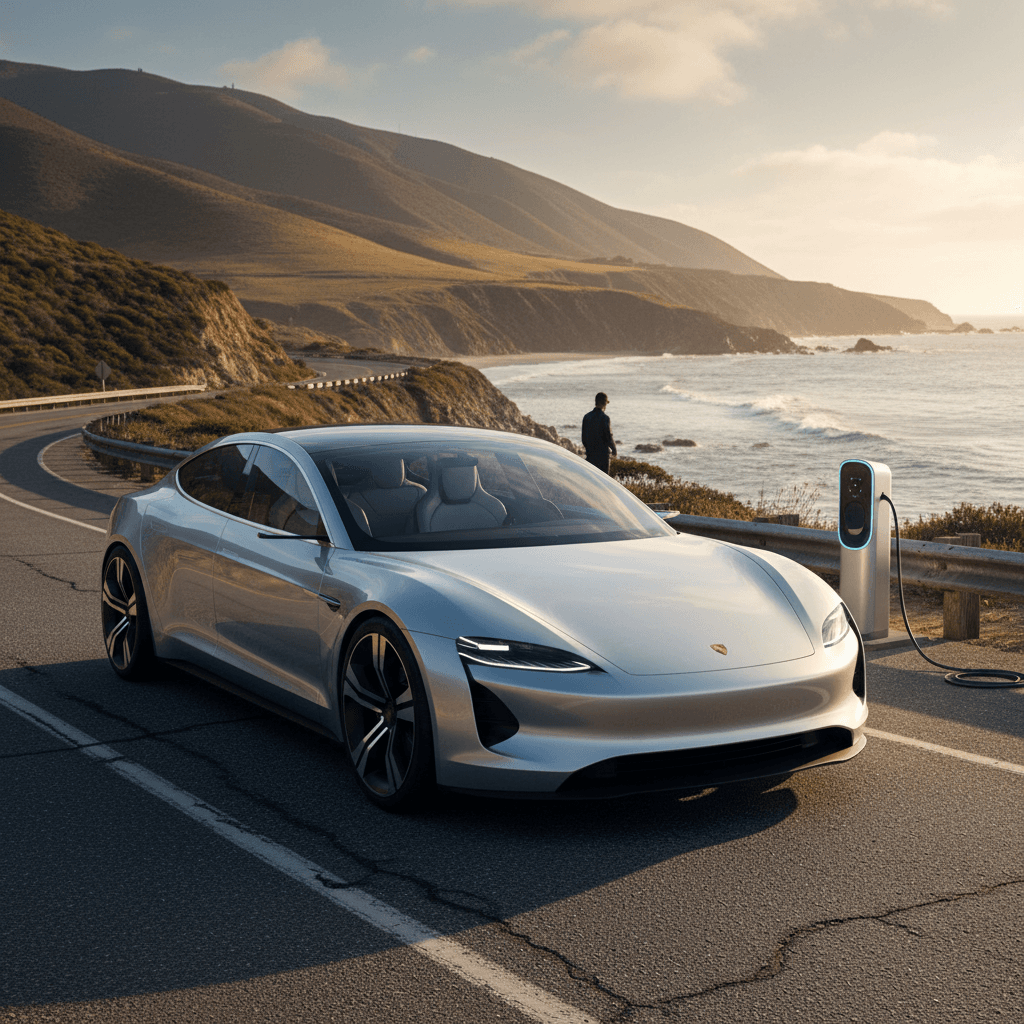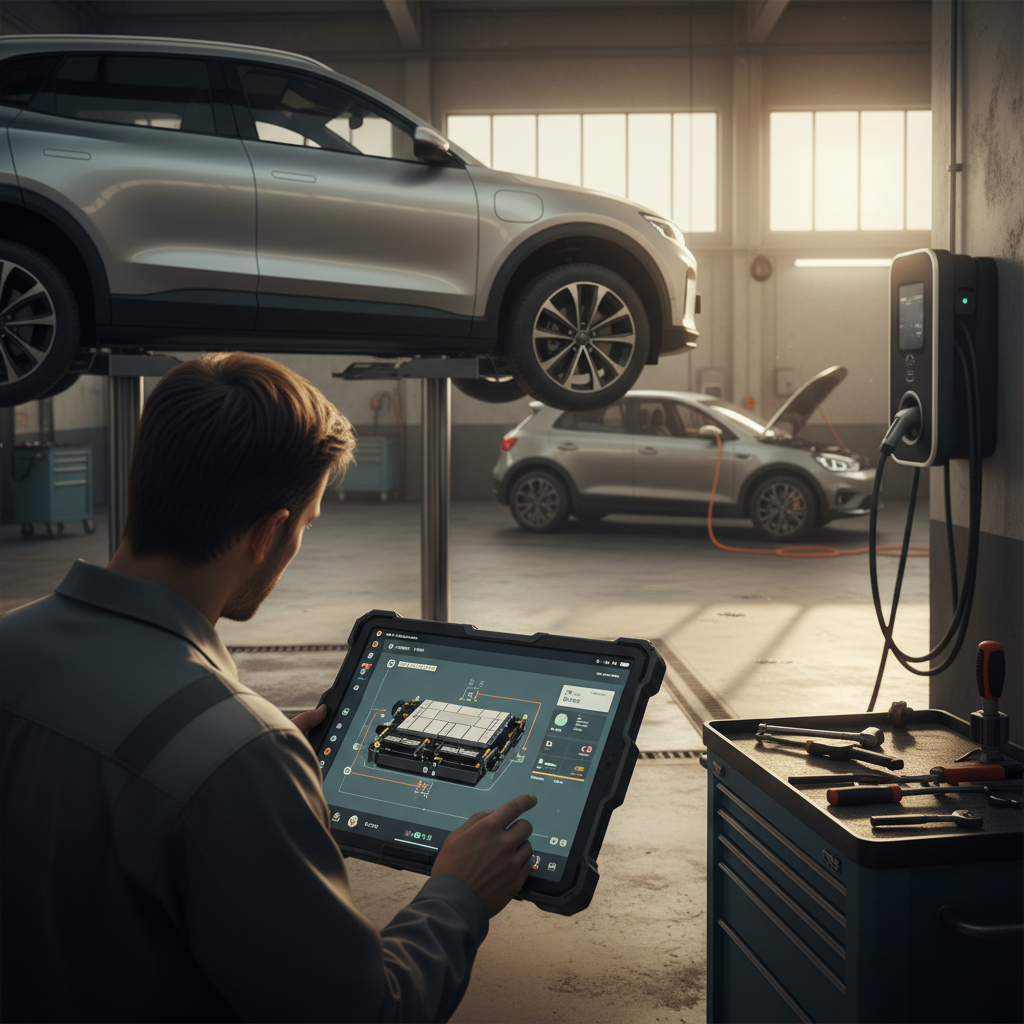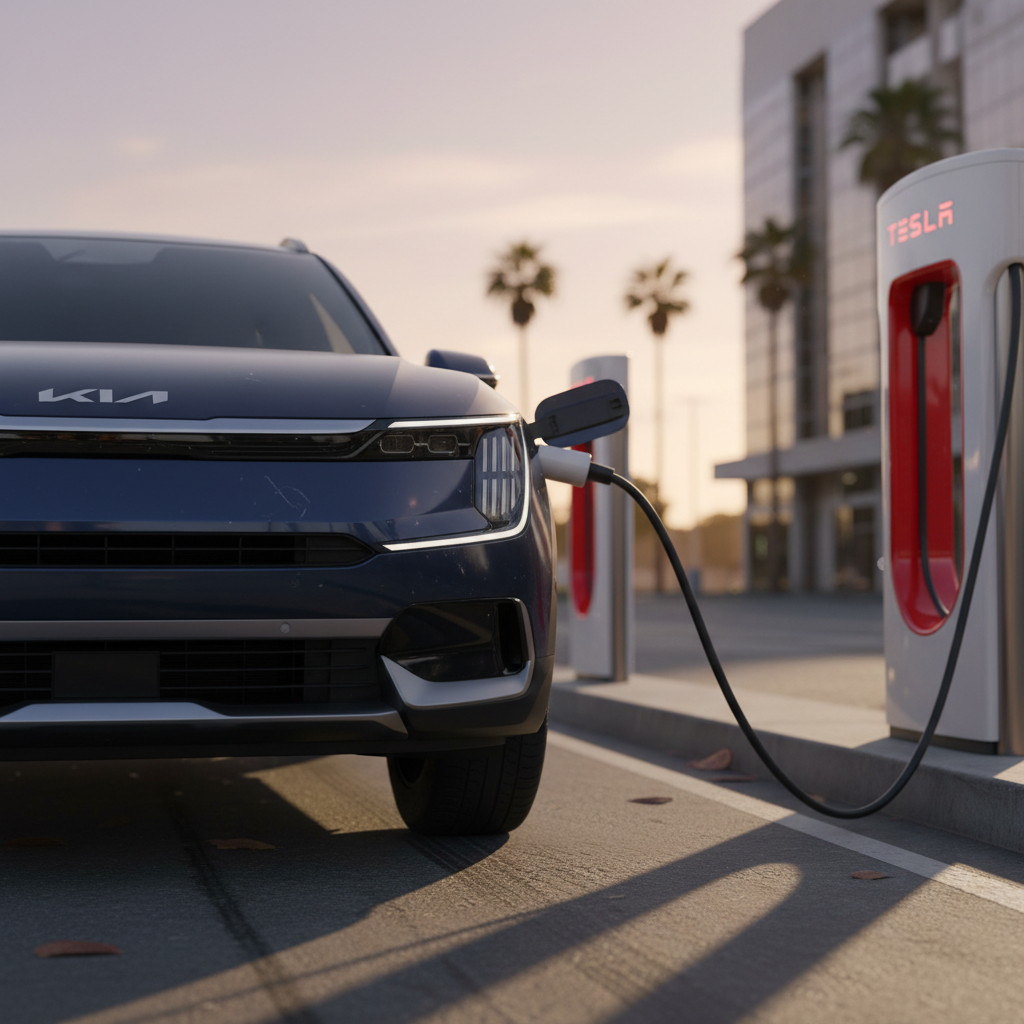If you’re searching “2nd hand SUV for sale”, you’re not alone, and in 2025, that search leads more and more shoppers to used electric SUVs. Prices on late‑model EVs have dropped sharply, while new‑car incentives have faded. That combination has turned the used EV SUV market into one of the best value plays in the entire auto world.
Why this moment is unusual
Why Used Electric SUVs Are a Bargain Right Now
The shifting EV value equation
Two big forces are driving this buyer’s market. First, new EV prices and incentives have been volatile, especially after the federal $7,500 EV tax credit expired in late 2025. Second, thousands of lease returns and early trade‑ins have hit the market faster than demand has grown. Put together, that means you can often buy a 2–3‑year‑old electric SUV with modern safety tech, great range, and remaining warranty for the price of a 5–7‑year‑old gas SUV.
How Recharged fits in
2nd Hand SUV for Sale: EV vs Gas Pros and Cons
Why a used electric SUV makes sense
- Lower running costs: Electricity is typically cheaper per mile than gasoline, and EVs have far fewer moving parts to service, no oil changes, spark plugs, or exhaust system.
- Quieter, smoother drive: Instant torque and near‑silent operation make daily commutes and road trips more relaxing.
- Newer tech for the money: Because EVs depreciate faster, you often get newer safety features, larger touchscreens, and over‑the‑air updates at the same price point.
- Home charging convenience: Starting each day with a full “tank” from your driveway beats stopping at gas stations for most drivers.
Where gas SUVs still have an edge
- Refueling speed and ubiquity: If you do constant cross‑country driving in remote areas, gas is still easier today.
- Cold‑weather range hit: EVs lose more range in very cold climates; the effect is manageable but real.
- Towing heavy loads: Some EV SUVs can tow well, but range drops quickly with heavy trailers.
- Familiarity: Mechanics, friends, and family may know gas SUVs better, so advice and support can feel more accessible.
Rule of thumb
How Much Do Used Electric SUVs Cost in 2025?
When you go online searching for a 2nd hand SUV for sale, you’ll see a wide spread of prices. For electric SUVs in the US, as of late 2025, you can roughly think in three tiers:
Typical used electric SUV price bands (US, late 2025)
Approximate asking prices you’re likely to see when browsing 2nd hand electric SUVs for sale.
| Tier | Example models | Typical price range | What you get |
|---|---|---|---|
| Budget | Older Nissan Leaf Plus, Hyundai Kona Electric, Chevy Bolt EUV | $15,000–$22,000 | Compact crossovers with 200+ miles of real‑world range, great for commuters and city families. |
| Mainstream | Tesla Model Y (earlier years), Ford Mustang Mach‑E, Kia EV6, Hyundai Ioniq 5 | $20,000–$30,000 | Well‑equipped 2‑row family SUVs with 250–320 miles of range and fast‑charging capability. |
| Newer/Luxury | Cadillac Lyriq, Kia EV9, high‑spec Model Y or Ioniq 5 | $30,000–$45,000+ | Larger, more premium SUVs with more space, luxury interiors and the latest driver‑assist tech. |
Actual prices vary by mileage, trim, region and condition, but these bands help orient your expectations.
Don’t shop on price alone
Best Used Electric SUVs to Shortlist
Popular used electric SUVs worth a look
These models show up often on used EV sites and balance price, range and charging fairly well.
Tesla Model Y (2020–2024)
The default answer for many used EV SUV shoppers. Strong range, often 260–330 miles depending on version, plus access to Tesla’s Supercharger network and a huge used supply, which keeps prices competitive.
- Best for: Families who value range and charging convenience.
- Watch for: Ride comfort (earlier cars are firmer) and build quality inconsistencies.
Ford Mustang Mach‑E
Ford’s first dedicated EV delivers sporty styling and a comfortable interior. Tech hasn’t changed much in recent years, which makes older examples excellent value.
- Best for: Drivers who want something fun to drive but still practical.
- Watch for: Early‑build software quirks and real‑world fast‑charging speeds.
Kia EV6 / Hyundai Ioniq 5
These Korean siblings ride on an 800V platform that supports very fast DC charging when conditions are right. Interiors feel upscale for the price, and warranties are strong.
- Best for: Road‑trippers who care about fast charging and design.
- Watch for: Tire wear and ensuring DC fast charging works as expected.
Chevrolet Equinox EV & similar GM SUVs
Newer entries like the Equinox EV bring competitive range and Ultium battery tech into the mainstream. Early used examples are just starting to appear, often with low miles.
- Best for: Shoppers wanting a familiar Chevy badge with modern EV chops.
- Watch for: Software updates, recall completion and charger compatibility in your area.
Shop the model, not the badge
Battery Health on a 2nd Hand SUV: What Really Matters
Battery health is the EV equivalent of engine compression on a gas SUV, except it’s easier to misunderstand. A healthy pack means more usable range, better fast‑charging and higher resale value. The good news: modern packs are aging more gracefully than early skeptics predicted, but you still need data, not guesses.
- Ask for a battery health report, not just a range estimate from the dashboard.
- Compare the car’s current usable capacity or estimated range to its original specs for that trim.
- Look for even cell balance in a proper diagnostic report, not just “80% state of health” with no context.
- Check whether the vehicle has had any high‑voltage battery recalls or replacements, and whether that work was done at an authorized service center.
- Consider climate history: vehicles that lived in extremely hot regions and quick‑charged constantly are more likely to show accelerated degradation.
What the Recharged Score shows you

Charging, Range and Real-World Usage
A spec sheet might say 300 miles of range and 200 kW fast charging. Real life is messier. When evaluating a 2nd hand SUV for sale, think in terms of your actual patterns: where you park, how far you drive on a typical day, and how often you take long trips.
Match the SUV to your charging reality
Start with how you live, not just what looks good in photos.
Home charging, modest commute
If you can install a Level 2 charger at home and drive under ~60 miles per day, almost any modern electric SUV will feel effortless.
- Prioritize comfort and interior space.
- Range above ~230 miles is usually plenty.
Apartment or street parking
No driveway? You’ll lean on workplace or public charging.
- Prioritize fast‑charging speed and networks near you.
- Check apps like PlugShare or ChargePoint before you buy.
Frequent road‑tripper
If you regularly drive multi‑state routes, range and charging networks matter more.
- Look for 250+ mile real‑world range.
- Favor models with strong fast‑charge performance and reliable networks on your routes.
Don’t forget weather and load

Essential Inspection Checklist Before You Buy
Buying a used EV SUV isn’t harder than buying a gas SUV, it’s just different. Use this checklist to keep yourself honest when you go from scrolling listings to test‑driving candidates.
Used electric SUV buyer’s checklist
1. Verify battery and charging hardware
Review a <strong>battery health report</strong>, confirm DC fast‑charging works, and inspect the charge port and cables for damage or corrosion.
2. Confirm software updates and recalls
Ask for a service history printout. Make sure all open recalls are addressed and that major software updates have been completed.
3. Inspect tires, brakes and suspension
EVs are heavy; they can wear tires and suspension faster than gas equivalents. Uneven tire wear or clunks over bumps may signal alignment or bushing issues.
4. Test all driver‑assist and safety systems
On your drive, test adaptive cruise, lane keeping, cameras and parking sensors. Malfunction lights or error messages are a red flag.
5. Check charging accessories and extras
Confirm you’re getting the home charging cord, mobile connectors, adapters and both key fobs. Replacing lost accessories isn’t cheap.
6. Understand the remaining warranty
Most EVs carry <strong>separate long‑term battery warranties</strong>, often 8 years and 100,000 miles or more. Verify in writing what’s left on both the vehicle and the pack.
Digital buying doesn’t mean blind buying
Financing a 2nd Hand Electric SUV and Using Your Trade-In
The end of federal purchase credits changed the math on new EVs, but it didn’t kill the value of used ones, it just shifted where the savings show up. Instead of tax credits, the discount is baked directly into the asking price. That means financing a used electric SUV now works a lot like financing a used gas SUV, and in some ways is simpler.
Smart money moves for used EV SUV buyers
Think beyond just "what’s my monthly payment?"
Leverage used‑EV depreciation
Because many used electric SUVs are already discounted heavily versus new, you’re less exposed to future price swings.
- Shorter loan terms (48–60 months) often make sense.
- You may be closer to equity sooner than a new‑car buyer.
Use your current car as a trade‑in
If you’re upgrading from a gas SUV or sedan, a trade‑in can significantly lower your financed amount.
- Recharged can provide an instant online offer or help you consign your vehicle for a higher sale price.
- Comparing both options is often worth the few extra minutes.
Pre‑qualify without the guesswork
Common Mistakes When Buying a Used Electric SUV
- Chasing the lowest price listing and ignoring battery health, warranty and charging speed.
- Assuming the EPA range rating equals real‑world year‑round range.
- Buying a powerful EV SUV without accounting for higher tire costs and potential faster wear.
- Skipping a professional EV‑savvy inspection because “it’s just like any other car.”
- Underestimating installation cost or complexity of adding a home Level 2 charger.
- Ignoring resale value; some models hold up better than others as the market evolves.
The biggest red flag
FAQ: Buying a 2nd Hand Electric SUV
Frequently asked questions about 2nd hand electric SUVs
Bottom Line: Is a 2nd Hand Electric SUV Right for You?
If you’re scanning listings for a 2nd hand SUV for sale, it’s hard to ignore how much more vehicle you can now get by going electric. Faster depreciation on new EVs has turned into your opportunity: newer model years, better safety tech, quieter cabins and strong performance, all for mainstream used‑SUV money.
The key is to shop like an EV insider: demand real battery data, understand your charging reality, and evaluate models based on range, charging and practicality rather than badge prestige alone. That’s exactly the journey Recharged is designed around, with verified battery diagnostics, fair market pricing, financing help and EV‑specialist support from first search to driveway delivery.
Ready to see what the market actually looks like? Start comparing used electric SUVs, check their Recharged Scores side by side, and pre‑qualify for financing in minutes. Your next family hauler might not just be a 2nd hand SUV, it might be your on‑ramp to easier, cleaner, lower‑maintenance driving.



